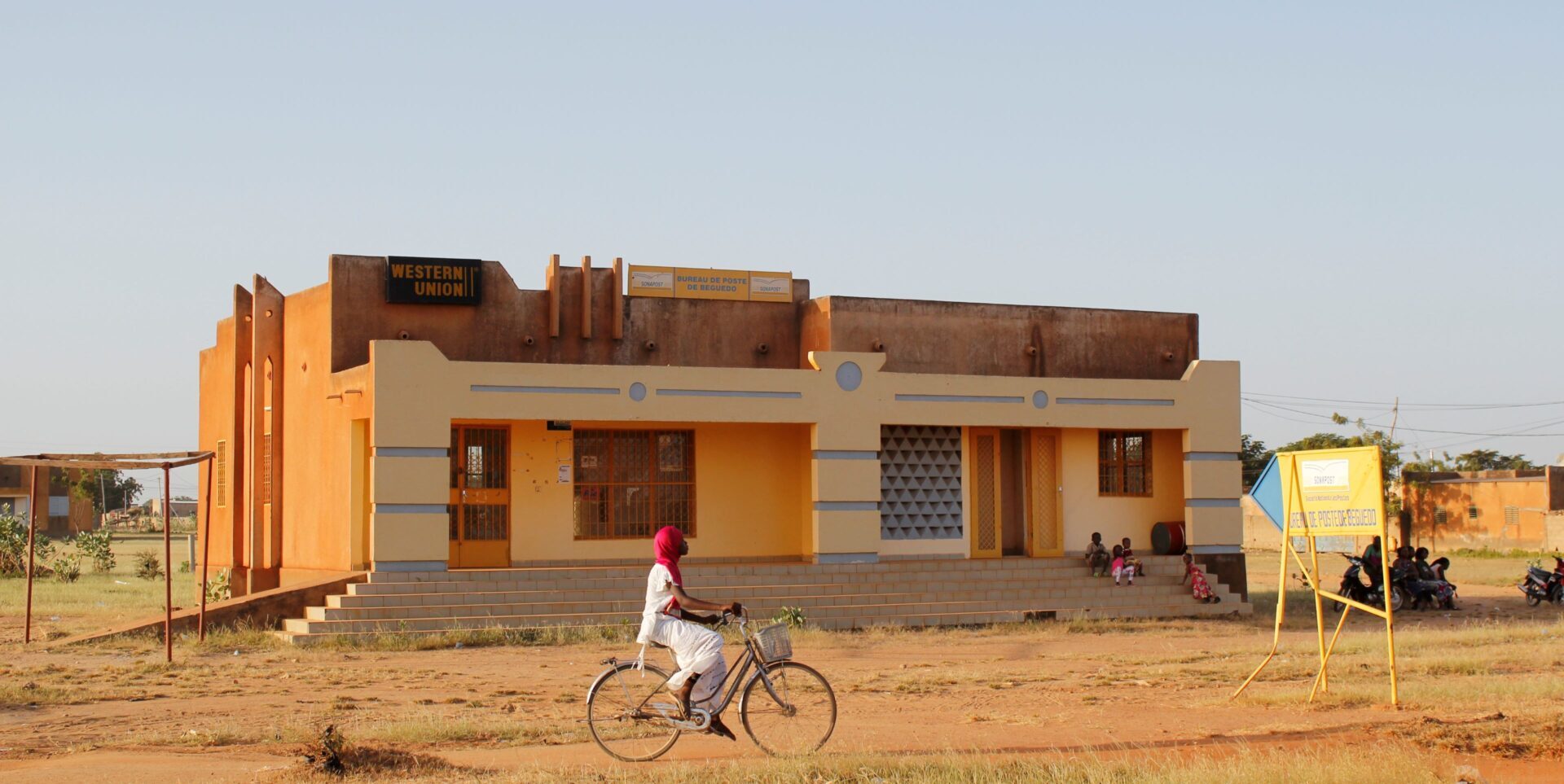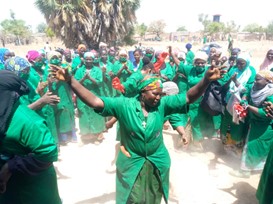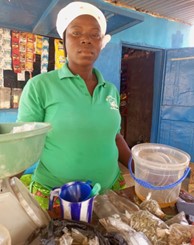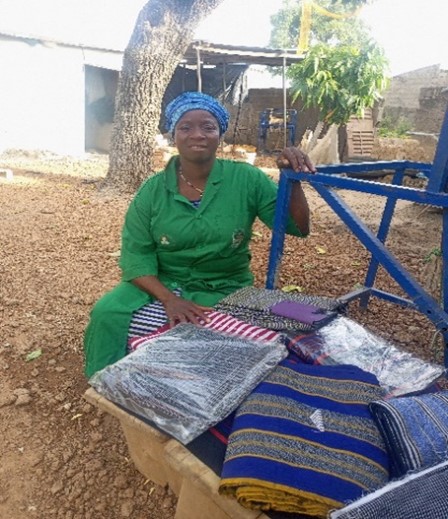
Combating Gender-Based Violence in Burkina Faso
How Corus International is Empowering Women and Building Resilience
With a population of over 23 million people, Burkina Faso is a nation facing numerous challenges, from a young demographic to escalating security threats that have devastated communities across all 13 regions.
For over five years, armed groups have relentlessly targeted the population, which has led to massive displacement. Current estimates show that more than two million people are internally displaced and 6.3 million are in need of assistance, many of whom face disruptions in basic services like education and health care.
As security concerns and resource shortages force women and girls into risky situations, exposure to gender-based violence (GBV) has surged—1.3 million now require GBV support. Women bear the burden of daily survival tasks, such as gathering water and fuel, exposing them to frequent threats.
In partnership with local organizations, Corus International has been working tirelessly to integrate GBV prevention and mitigation into its humanitarian projects, focusing on empowering women and creating safer, more resilient communities. Over the past three years, two key projects have been implemented, one in the Center-North region and the other in the East region. These initiatives focus on internally displaced persons (IDPs) and host communities, particularly women and youth, aiming to address GBV risks holistically.
Strategies for Empowerment and Protection
Social and Behavioral Change Communication
One of Corus’s cornerstone approaches has been strengthening community-level communication to promote social and behavioral change. This initiative involves delivering life-saving messages that address GBV and outline practical steps to mitigate the risks.
Collaborating with local health services, Corus has provided refresher training to Community-Based Health Agents who lead awareness sessions on topics such as GBV prevention, referral services, and sexual exploitation. Through this information-sharing process, communities gain knowledge on recognizing and addressing GBV risks and fostering a safer environment for survivors to seek support.
Women’s Economic Empowerment
Enhancing economic resilience for women is another proven strategy, empowering them to meet their own and their families’ needs while reducing exposure to external pressures and exploitation. In addition to increasing women’s incomes, Corus’s initiatives help shift household dynamics, granting women more respect and influence within their homes. Economic empowerment activities, like market gardening, livestock farming, and soap production, encourage women’s autonomy, reducing dependency on potentially exploitative support.

Husbands are also sensitized to the importance of avoiding violence and families receive training on entrepreneurship and business management, further supporting sustainable economic development.
Financial Access Through Community-Led Savings and Loans
Corus International promotes financial access by encouraging community-led savings and loan associations, which enable group members to pool resources and offer small loans. This innovative approach helps women finance small businesses, contributing to long-term economic security. Women like Possibo Combari and Yonli Folpoa, featured below, have used loans to develop their businesses, allowing them to support their families and avoiding potentially dangerous survival strategies.
Success Stories
Possibo Combari, a 30-year-old IDP and mother of three, initially faced tension with her husband due to financial dependency. Through her participation in a soap production group, she gained an income and took out a small loan to start selling vegetables. This allowed her to contribute to household needs, easing her relationship with her husband and enabling her to avoid risky trips to gather wood in insecure areas by purchasing it instead.

“Economic empowerment is really important in GBV risk mitigation and prevention,” Possibo emphasizes. “Without it, the risk will remain very high.”
Another inspiring example is Yonli Folpoa, a 51-year-old widow and mother of five, who has leveraged her involvement in Corus projects to start her own weaving business. Employing two women and involving her daughters in the business, she has been able to provide for her family’s needs while reducing their exposure to GBV risks

Yonli reflects, “With no means, some women are forced to accept humiliations just to feed their families. But because of LWR’s support, I can meet our basic needs and prevent other women and girls from falling into dangerous situations.”
Integrated Approaches for Lasting Impact
Corus International’s integrated approach to GBV prevention in Burkina Faso combines awareness, economic support, and community-based resource pooling to foster resilience among vulnerable populations. By empowering women economically, supporting safer behaviors, and reinforcing social structures, Corus is effectively reducing GBV risks in communities facing intense hardship.
The interconnected nature of these strategies has proven effective, not only in reducing incidents of GBV but also in fostering a culture of resilience and respect. The practical assistance offered through economic empowerment, awareness, and financial independence equips women to lead safer, more dignified lives while contributing to the well-being of their communities.
As security challenges persist, Corus’s model of integrated support and economic empowerment offers a vital path forward to a safer, more stable future for women and girls in Burkina Faso.
—
Note: The views in this blog are the author’s own and do not necessarily reflect the views of InterAction.








